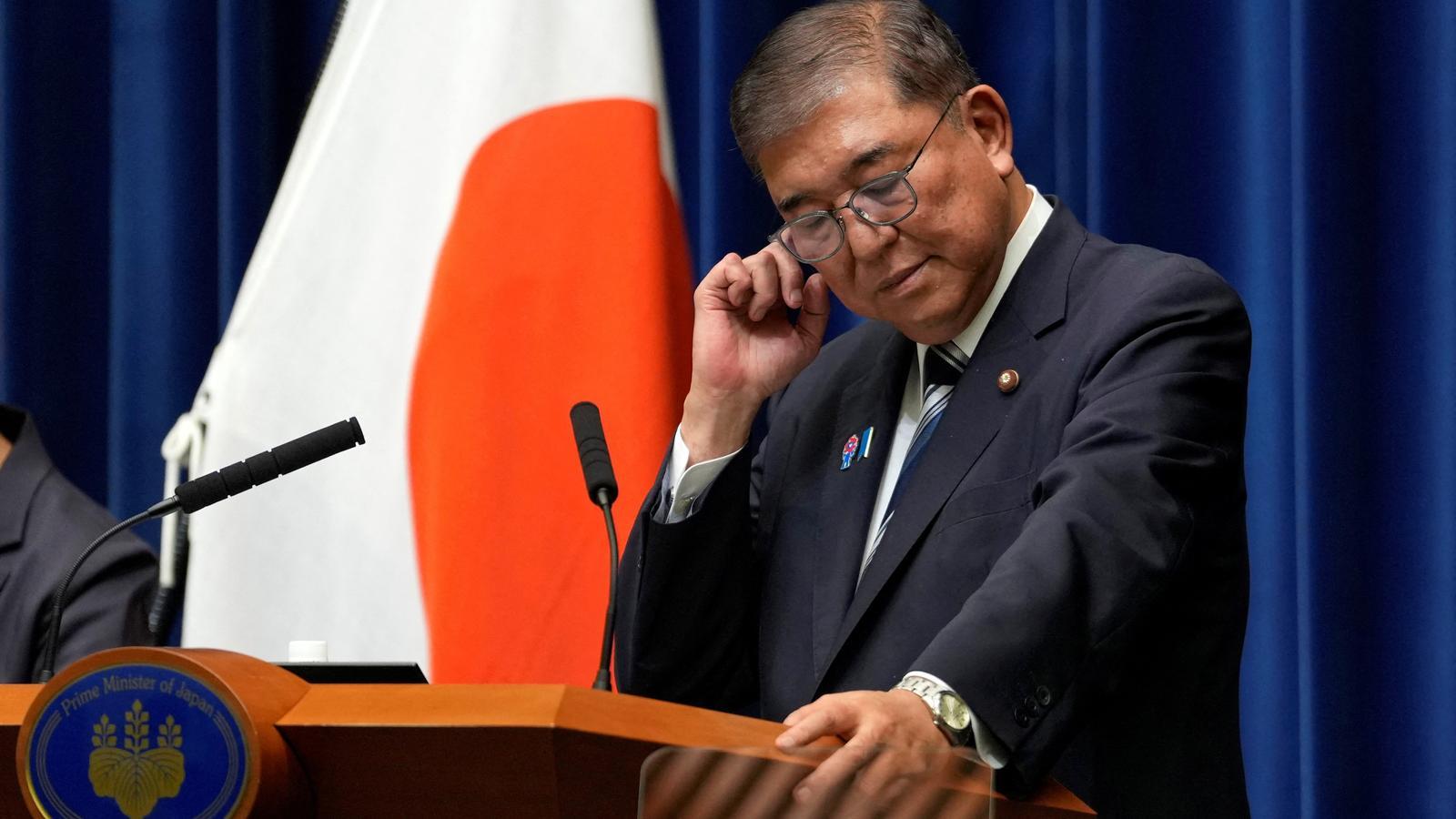Japan's prime minister resigns, one day before his party attempted to remove him from power.
The ruling coalition had lost its majority in both parliamentary chambers of the country.

BarcelonaJapanese Prime Minister Shigeru Ishiba announced his resignation on Sunday, just one day before his party was scheduled to hold a meeting to approve bringing forward primaries aimed at removing him from the leadership of the party and the government following disappointing election results.
"I have decided to resign as leader of the Liberal Democratic Party (LDP), so, according to the party's internal bylaws, calling an extraordinary election to elect a new president is no longer necessary," the president declared at a hastily convened press conference following the leak of the Economic Revitalization Agency (ERC) and his close associate, Ryosei Akazawa, and government spokesman, Yoshimasa Hayashi.
"I have been saying for some time that I had no intention of holding on to my position and that I would announce my decision at the appropriate time," he added, arguing that now was indeed an opportune moment because the Minister of Economic Revitalization, who is Japan's negotiator on tariffs, has returned to the country after successfully lowering the tariffs on Japanese vehicles to 15%. He stressed that this trade agreement is a "milestone" for Japan and called on his successor to fully implement its terms and address any concerns and questions that may arise regarding the pact.
Ishiba will remain prime minister until his party elects a new leader. However, his resignation is a clear sign of his willingness to take responsibility for the election results of the July 20 upper house by-elections, in which the ruling coalition lost its majority. A defeat that came on top of the loss of the majority in the lower house in the October general elections, leaving the government in a minority, something completely unusual in post-war Japan. This led to an internal revolt within his party aimed at removing him from power.
Ishiba's resignation as president of the Liberal Democratic Party also entails his resignation as head of government. In Japan, the prime minister is held by the leader of the party with the most votes in the general elections, and consequently, a change at the head of the party also means a change at the head of the government. Ishiba had been leader of the LDP since September of last year.
Successes of his mandate
During his appearance, the current Japanese Prime Minister reviewed some of the achievements of his term, beyond the trade agreement with Washington. For example, the historic increase in the minimum wage and the approval of an extraordinary budget to address the impact of persistent inflation. He also thanked those who trusted him for their support, apologized "for having to resign," and urged his successor to strengthen the alliance with the United States and strengthen the country's ties with other Asian nations, Africa, and Europe.
"Japan is necessary for the world; that is the feeling I have strongly had this year," he stated. He also expressed concern about the proximity between North Korea, Russia, and China, and asserted that acquiring deterrent capabilities is "an imminent challenge." Regarding domestic concerns, he cited the need to revitalize rural economies and address the declining birth rate and aging population.
The LDP must now decide when it will hold internal elections to elect its new president and, therefore, Japan's new prime minister. Ishiba has already announced that he will not run as a candidate. The names most strongly suggested in public polls to succeed him are former Economic Security Minister Sanae Takaichi and current Agriculture Minister Shinjiro Koizumi, the public face of the administration of the so-called rice crisis in the country.
